After 15 years of practicing hard, she attended the first “National Competition of Dan tranh Young Talents” held in Ho Chi Minh City’s Cultural Palace in 1992 and won first prize for her interpretation of new compositions, becoming a Dan tranh star in Vietnam.
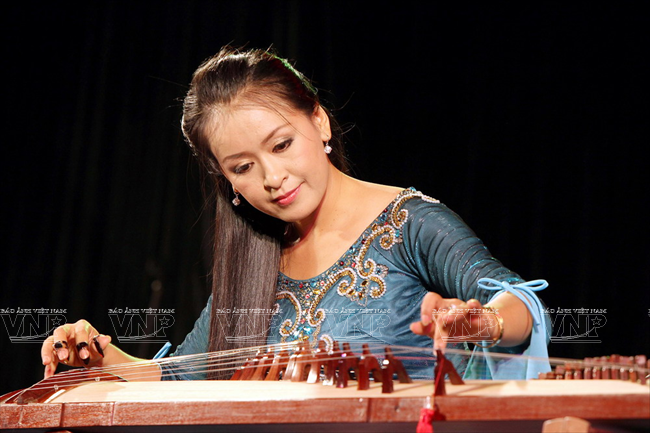 Hai Phuong has devoted herself to traditional dan tranh for over 20 years. Photo: Le Minh/VNP 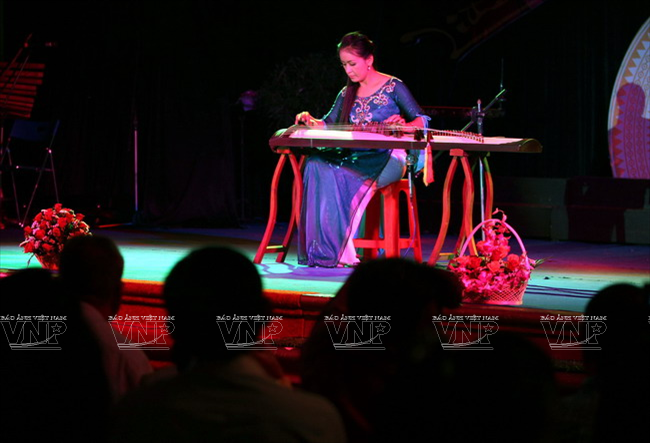 Hai Phuong performs a solo at the 3rd Hoi ngo dan tranh concert. Photo: Le Minh/VNP 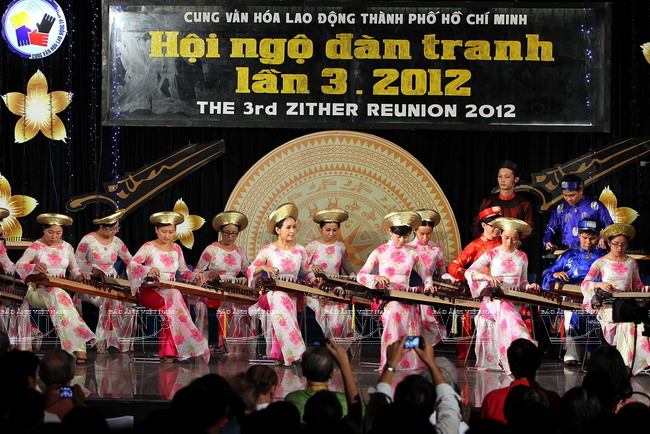 Artist Hai Phuong performs with other artists at the 3rd Hoi ngo dan tranh concert. Photo: Le Minh/VNP 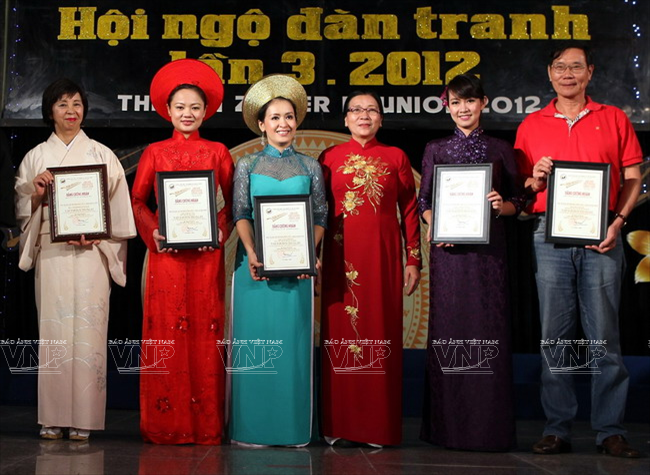 Artist Hai Phuong receives a certificate for her participation at the 3rd Hoi ngo dan tranh concert in 2012. Photo: Le Minh/VNP 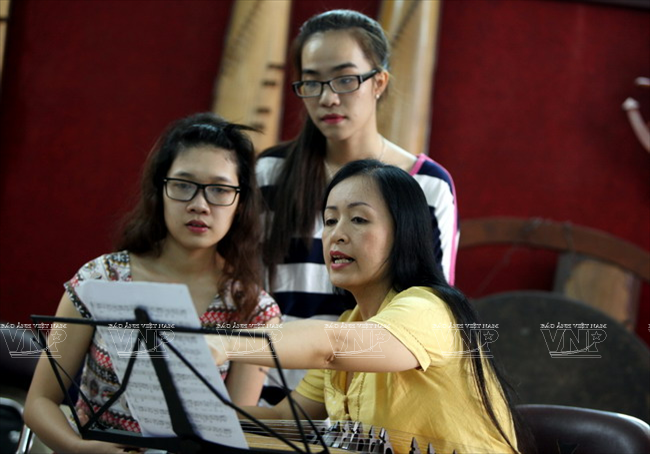 Hai Phuong guides students majoring in zither playing at the Conservatory of Ho Chi Minh City. Photo: Le Minh/VNP |
In 1993, Hai Phuong went to France and recorded her first DVD, called “La Music Hier et Aujourd’ hui” (Zither of Today and the Past) with Prof. Tran Van Khe that brought her two prizes from the French Government, marking a milestone in her career. Returning home, she continued attending a post-graduation programme and then became one of two first Doctors of Art on traditional music performance method of the Conservatory of Ho Chi Minh City. Apart from her job at the conservatory, Hai Phuong has performed in many concerts and international music festivals, including Vietnamese Music Day at the ACL (Asian Composers League) Music Festival in 2000, Expo’ 93 in the Republic of South Korea and at the Vietnam Festival in Japan in 2001 and the Vietnamese Music Day at the ACL (Asian Composers League) Music Festival in 2000.
In 1981, Hai Phuong, her mother and younger sister Hai Yen founded Tieng Hat Que Huong (Homeland Song) Club in the Labour Cultural Palace in District 1, Ho Chi Minh City with the aim of teaching and promoting traditional music. The club has a regular programme every weekend and the number of people who want to learn to play the Dan tranh has increased considerably. It shows the fact that if traditional music is widely promoted and popularised there will be more zither lovers that help vitalize and develop traditional music.
According to Hai Phuong, to play the Dan tranh, one must practice hard for a long time. It takes about one month for one who practices hard to play a simple piece of music and five months with eight hours of practicing every day for a complicated one. It will take new players more time and most importantly they must be patient and like it. For Hai Phuong, the more she is committed to traditional music in general and zither music in particular the more she feels compelled to master the instrument.
Recently, Hai Phuong and the Saigon Big Band founded by saxophonist Tran Manh Tuan combined zither music with jazz that impressed the audience. She now works as a lecturer at the National Music Faculty of the Conservatory of Ho Chi Minh City and Vice Director of the Tieng Hat Que Huong Club. She has also conducted much research and composed many pieces of music for the zither.
Having been dedicated to the country’s traditional music for over 20 years, Hai Phuong has performed in over 20 countries around the world and attended many international music festivals. She produced many zither albums, namely Tinh ca que huong, Ben xuan, Tieng xua, Lan dieu coi nguon and Tieng dan Hai Phuong. All bring a fresh perspective of countryside, folk melodies and amateur music./.



